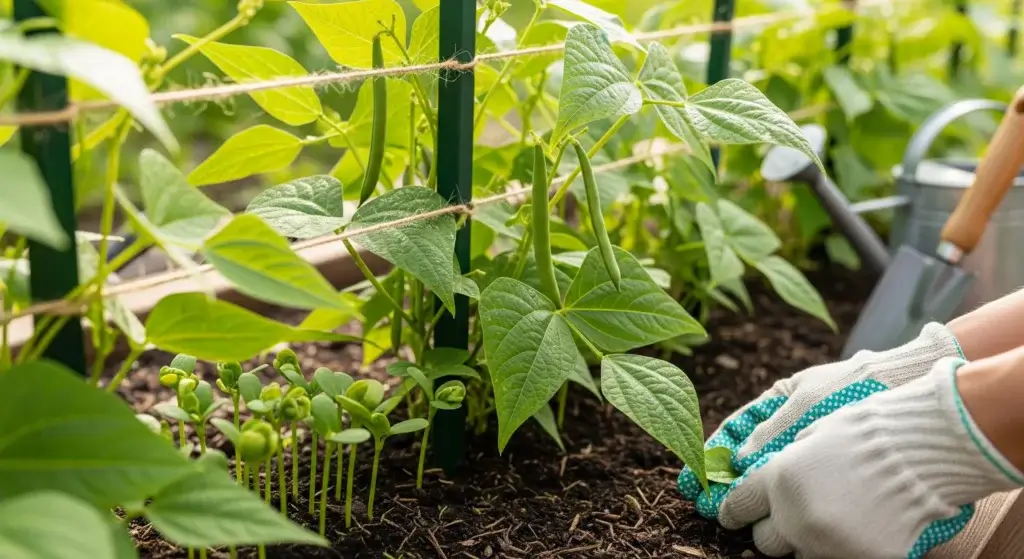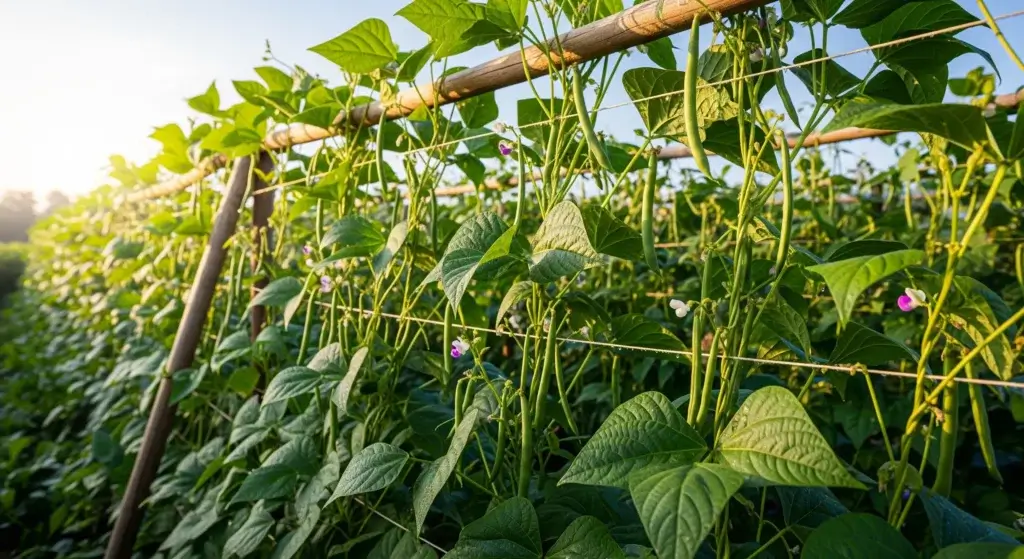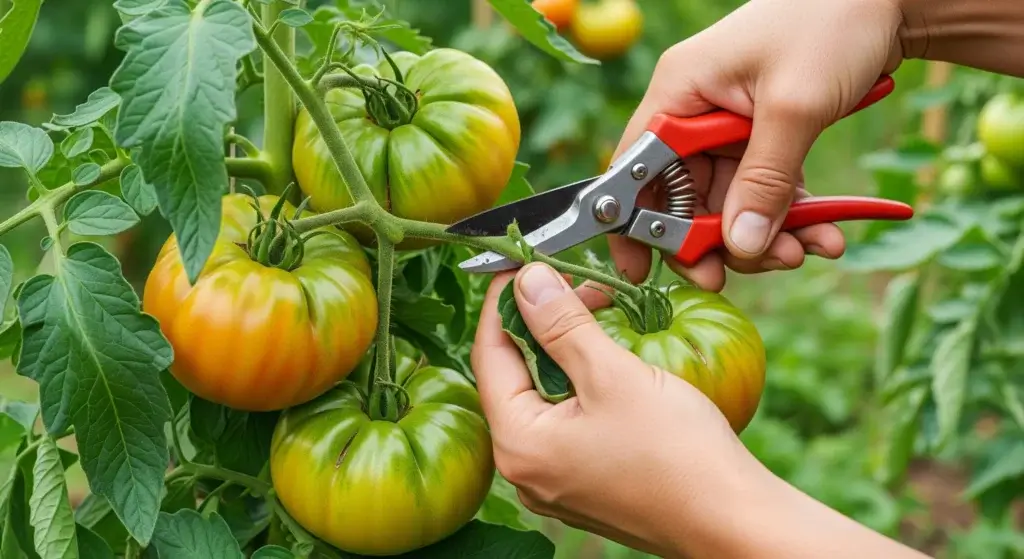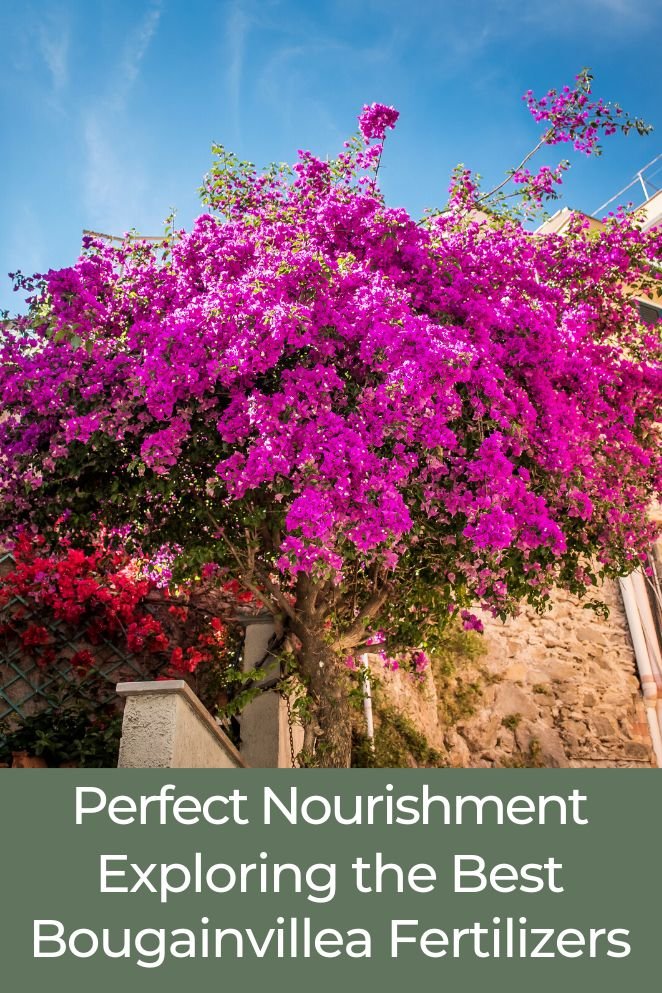
If you’re a proud bougainvillea owner, you know just how breathtaking these vibrant plants can be when in full bloom.
But to keep your bougainvillea looking its best, proper fertilization is key.
In this comprehensive guide, we’ll delve into everything you need to know about choosing the best fertilizer for your bougainvillea to ensure it thrives and dazzles with its colorful display.
About Bougainvillea
Bougainvillea, renowned for its vibrant bracts showcasing a spectrum of colors, stands as a favored selection for gardens, balconies, and landscapes globally.
Originating in South America, these robust vines are celebrated for their tenacity and capacity to flourish across diverse climates, ranging from tropical to Mediterranean regions.
- Read also: How to Make Organic Fertilizers at Home
- Read also: A Guide to Desert Rose Fertilizer Care
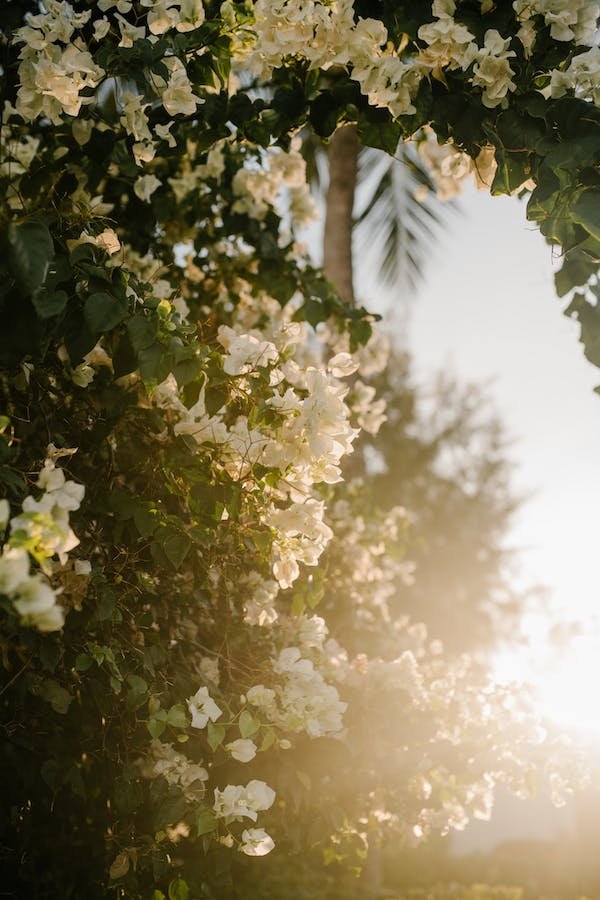
When and How to Fertilize Bougainvillea?
To fertilize a bougainvillea, you can use a balanced, all-purpose fertilizer such as a 5-5-5 fertilizer for container plants, applying it once per month.
For plants in the ground, a balanced, all-purpose fertilizer, such as a 10-10-10, can be applied 2-3 times per year.
It’s recommended to feed your bougainvillea in early spring and mid-summer for abundant blooms.
Additionally, a slow-release fertilizer can be used at least twice per year, starting in early spring and repeating the process near the middle of summer.
When fertilizing, it’s important to follow the instructions on the fertilizer package and to water the plant thoroughly after fertilizing.
It’s also advised to avoid feeding your bougainvillea when its root system is dry and to use a high-phosphorus fertilizer to encourage blooming once the plant is well-established and has significant vegetative growth.
What are the Nutrient Requirements of Bougainvillea Plants?
To meet the nutrient requirements of bougainvillea plants, it’s important to provide them with a balanced fertilizer that contains nitrogen, phosphorus, and potassium (N-P-K).
The best time to fertilize bougainvillea is during its active growing season, which is usually from early spring to mid-summer.
For container plants, a balanced, slow-release fertilizer with a higher phosphorus content, such as a 5-5-5 blend, can be applied once per month.
For plants in the ground, a balanced, all-purpose fertilizer, such as a 10-10-10, can be applied 2-3 times per year.
It’s recommended to feed your bougainvillea in early spring and mid-summer for abundant blooms.
Additionally, a slow-release fertilizer can be used at least twice per year, starting in early spring and repeating the process near the middle of summer.
When fertilizing, it’s important to follow the instructions on the fertilizer package and to water the plant thoroughly after fertilizing.
It’s also advised to avoid feeding your bougainvillea when its root system is dry and to use a high-phosphorus fertilizer to encourage blooming once the plant is well-established and has significant vegetative growth.
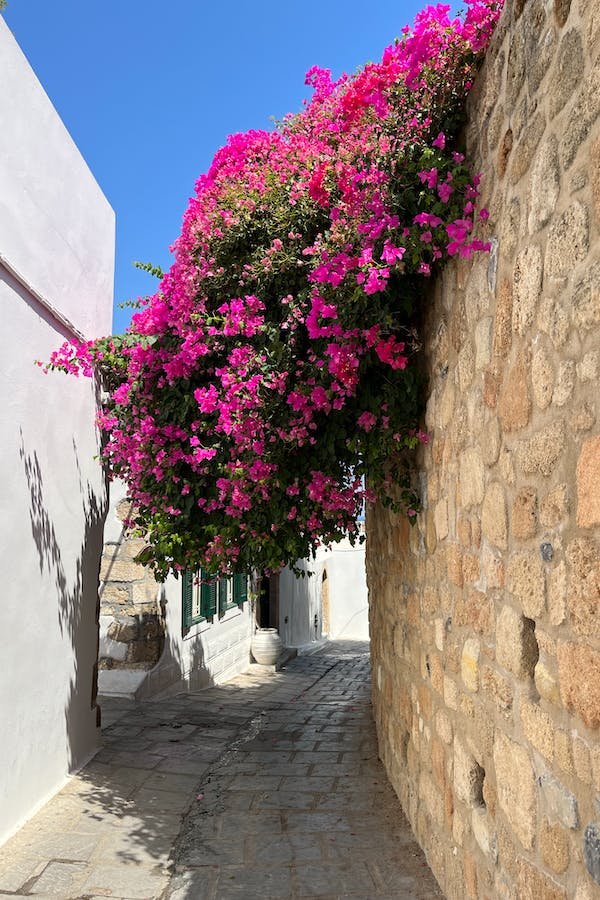
What is the Best Fertilizer For Bougainvillea?
The best fertilizer for bougainvillea is a balanced, all-purpose fertilizer with a higher phosphorus content to encourage blooming.
Here are some recommended fertilizers for bougainvillea:
Jacks classic No.1.5 fertilizer 20-20-20
Jacks Classic No.1.5 Fertilizer 20-20-20 is a well-balanced fertilizer with a composition of 20% nitrogen, 20% phosphorus, and 20% potassium, collectively known as the NPK ratio.
This carefully formulated blend plays a crucial role in boosting the growth of new flowers in bougainvillea plants.
The balanced nutrient profile supports overall plant health, ensuring robust development and vibrant blooms.
Slow-release fertilizer
For a more controlled and sustained nutrient release, consider opting for a slow-release fertilizer.
Particularly, those with a higher phosphorus content are beneficial for bougainvillea.
This type of fertilizer can be applied at least twice a year, starting in early spring and repeating the process around the middle of summer.
The slow-release mechanism provides a steady supply of nutrients, promoting sustained growth and continuous flowering throughout the growing season.
BloomStix
A mineral-based natural fertilizer tailored to enhance the flowering capabilities of bougainvillea.
Characterized by low nitrogen and high phosphorus levels, BloomStix is designed to stimulate and support the blooming phase of the plant’s life cycle.
This mineral-rich formulation contributes to the overall health of the bougainvillea, ensuring an abundance of colorful and striking bracts.
Hibiscus food, 12-4-18
Another noteworthy option is the Hibiscus Food with a composition of 12-4-18. Specifically recommended for bougainvillea, this fertilizer stands out due to its elevated potash content.
Potash, a form of potassium, plays a crucial role in promoting flower development and overall plant vitality.
By choosing a fertilizer with higher potash levels, such as the Hibiscus Food, you are providing your bougainvillea with essential nutrients that contribute to a profusion of flowers.
When choosing a fertilizer for bougainvillea, it’s important to consider the NPK ratio, with a higher phosphorus content to encourage blooming.
Additionally, slow-release fertilizers and bloom boosters can be beneficial for promoting healthy growth and abundant flowering in bougainvillea plants.
What are Potential Issues About Common Fertilizer Problems?

The use of fertilizers can have potential issues and problems, as highlighted by the search results:
Overuse of fertilizers
The excessive use of fertilizers poses significant environmental challenges, contributing to the release of greenhouse gases and eutrophication, both of which can have detrimental effects on ecosystems.
Greenhouse gases, like nitrous oxide, can be emitted when fertilizers break down, contributing to climate change.
Hidden dangers of chemical fertilizers
Chemical fertilizers, commonly used in agriculture, bring about hidden dangers that extend beyond the intended benefits.
One such peril is groundwater contamination.
The leaching of chemicals from fertilized soils can infiltrate groundwater, posing a threat to water quality and potentially affecting human health.
Nutrient run-off
The issue of nutrient run-off, particularly from farms employing synthetic fertilizers, has gained attention from organizations like the United Nations-backed Intergovernmental Science-Policy Platform on Biodiversity and Ecosystem Services.
This run-off, laden with nutrients, can adversely impact land ecosystems, disrupting the delicate balance of biodiversity and ecosystem services crucial for sustaining life.
Environmental damage from overapplying fertilizers
Environmental damage resulting from overapplying fertilizers is a critical concern, especially in areas with high agricultural production.
The surplus nutrients not absorbed by plants can lead to pollution, negatively affecting soil, air, and water quality.
This, in turn, can contribute to habitat loss and disrupt the intricate relationships within ecosystems.
Water quality impacts
Water quality is particularly susceptible to the impacts of excess fertilizers and manure.
The presence of elevated nutrient levels in water bodies can trigger harmful phenomena like algae blooms.
These blooms deplete oxygen in surface waters, creating “dead zones” where marine life struggles to survive.
- Read also: Thriving Spider Plant Care Indoors
- Read also: Succulents Watering Tips
Conclusion
Choosing the best fertilizer for your bougainvillea is essential for ensuring its health and vitality.
By understanding the plant’s nutrient requirements and selecting a balanced fertilizer with the right NPK ratio, you can promote vigorous growth and vibrant flowering throughout the growing season.
Remember to fertilize your bougainvillea at the appropriate times and avoid common fertilizer problems to keep your plant looking its best year-round.
Frequently Asked Questions (FAQs)
Fertilize your bougainvillea every 4-6 weeks during the active growing season, using a balanced fertilizer with a higher potassium content.
Yes, organic fertilizers can be used for bougainvillea, but ensure they provide a balanced blend of nutrients and follow the recommended application rates.
If your bougainvillea isn’t flowering, it may be due to nutrient deficiencies or improper fertilization. Try adjusting your fertilization regimen and ensure your plant is receiving adequate sunlight and water.
While foliar feeding can provide a quick nutrient boost, it’s not a substitute for regular root fertilization. Use foliar sprays sparingly and in conjunction with soil fertilization for best results.

